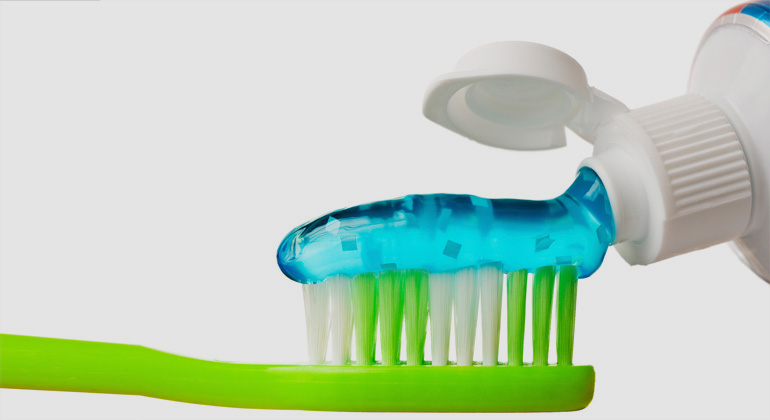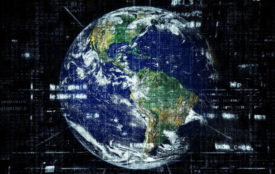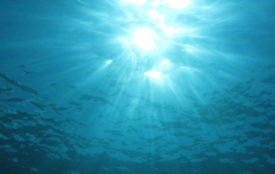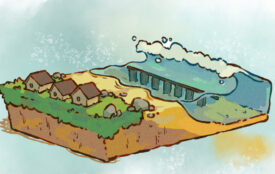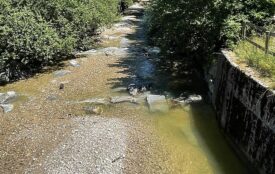On World Oceans Day, New UN Report Recommends Ban of Microplastics in Cosmetics
Study showcases potential threats to human and ecosystems’ health.
For the last 50 years, microparticles of plastic, called microplastics, have been used in personal care products and cosmetics (PCCP), replacing natural options in a large number of cosmetic and personal care formulations. Washed down the drain, those particles cannot be collected for recycling, nor do they decompose in wastewater treatment facilities, inevitably ending up in the global ocean, where it fragments and remains
More than 299 million tonnes of plastic was produced worldwide in 2013 some of which made its way to our oceans, costing approximately US$13 billion per year in environmental damage to marine ecosystems. Once in the ocean, plastic does not go away: it fragments, eventually breaking down into smaller pieces known as secondary microplastics.
As society has developed new uses for plastic, the variety and quantity of plastic items found in the environment, has increased dramatically. Microbeads and other plastic ingredients are present in products ranging from toothpaste and shower gel to eye shadows and nail polish. Their proportions vary in different products, from less than 1 per cent to more than 90 per cent of the content. In a typical shower gel analyzed in laboratory, there was roughly as much plastic material in the gel itself as in its packaging.
A total amount of 4,360 tonnes of microplastic beads was used in 2012 across all European Union countries plus Norway and Switzerland according to a survey by Cosmetics Europe, focusing on the use of microplastic beads, with polyethylene beads representing 93% of the total amount equaling 4,037 tonnes.
Knowledge is emerging about the ubiquitous occurrence of microplastics throughout the world’s marine environment and their potential for secondary health impacts via the food chain, including to humans who consume seafood. This, coupled with emerging knowledge about the toxic effects such particles have on biological organisms, including mammals, has led to concern and actions to monitor and reduce microplastics emissions.
In June, 2014, representatives of more than 150 countries, gathered for the first-ever United Nations Environment Assembly (UNEA), adopted a resolution on marine plastic debris and microplastics, noting with concern the impacts of such materials on the marine environment, fisheries, tourism and development and calling for strengthened action, in particular by addressing such materials at the source.
The resolution tasked the United Nations Environment Programme (UNEP) to conduct a worldwide study on microplastic debris in the marine environment, as well as to continue the work toward source reduction and mitigation of their impacts globally.
The report launched today makes several recommendations for producers and consumers, as well as for researchers and policymakers. It calls for a voluntary phase-out of microplastics by the industry precipitated by consumers’ decisions not to buy products containing microbeads. Given the associated potential risks of microplastics, the report recommends a precautionary approach toward microplastic management, with the eventual phase-out and ban in PCCPs.
Introduction of legislation banning or phasing-out microplastics in PCCPs has already started and is expected to continue in the future. The state of Illinois is leading the way in the U.S. by banning all microplastics in PCCPs by 2019. California and New York are among other U.S. states that are pursuing similar measures and the European Commission has highlighted marine microplastics pollution as a priority area of concern. The Netherlands, Austria, Luxembourg, Belgium and Sweden have issued a joint call to ban the microplastics used in personal care products, saying the measure will protect marine ecosystems – and seafood such as mussels – from contamination.
This publication was prepared under the framework of the Global Partnership on Marine Litter (GPML), hosted by the Global Programme of Action for the Protection of the Marine Environment from Land-based Activities (UNEP/GPA).
Through the GPML and other relevant initiatives, UNEP is committed to working with all stakeholders to reduce the influx of waste into the ocean and to prevent waste from getting into the environment in general. Tackling the marine litter issue will require companies to work in partnership with all other stakeholders. This includes collaborating with governments to develop effective legislation and waste management infrastructure, especially in developing countries.
Further Resources:
- Download the full report
- GPML website:
- Marine Litter Network
- UNEA Resolution
- Beat the Microbeads Application
